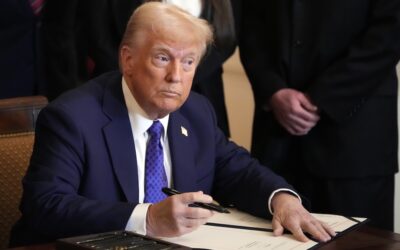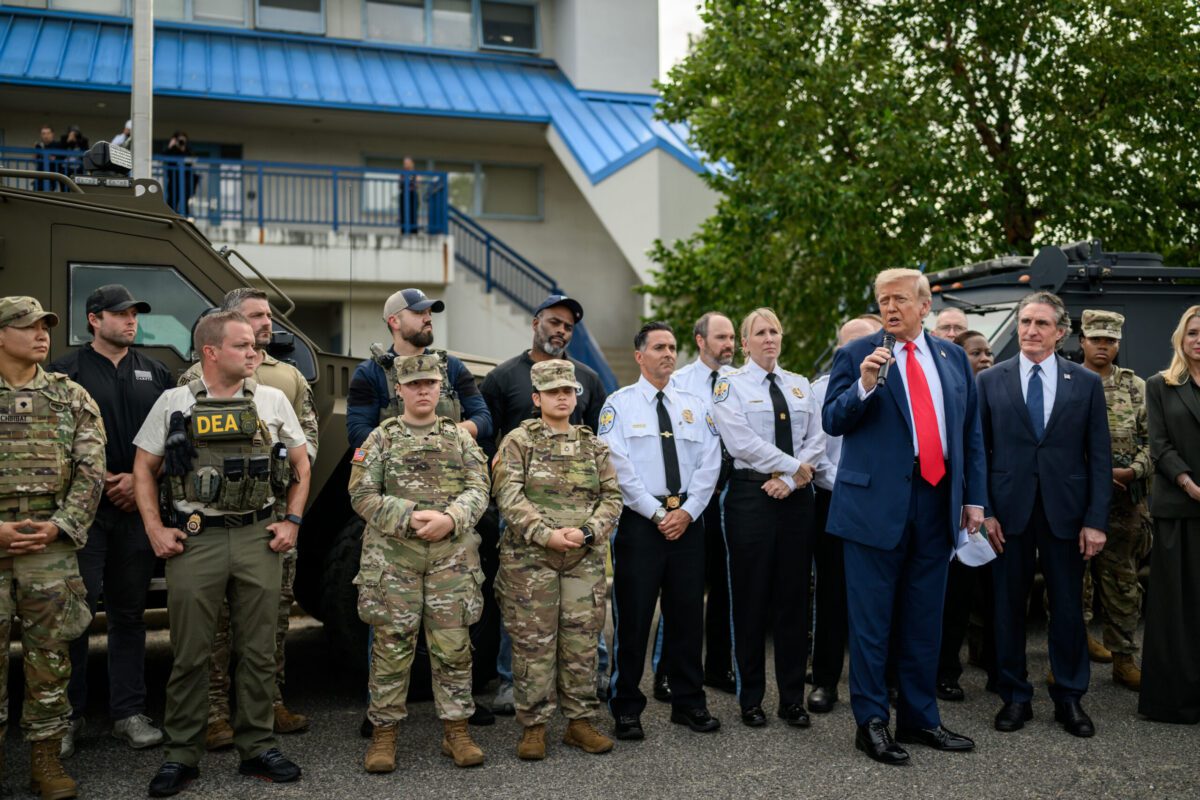
President Donald Trump visits law enforcement and members of the National Guard at the U. S. Park Police Anacostia Operations Facility, Thursday, August 21, 2025, in Washington, D.C. (Official White House Photo by Daniel Torok)
WASHINGTON – President Donald Trump has not floated the possibility of sending troops into Arizona. But the violent crime rate in Phoenix is higher than the rate in Chicago, the next city on the president’s list.
The rate of violent crime per capita in Phoenix is high enough to rank 51st among cities of 100,000 or more. Chicago ranks 108th. Washington, D.C., is 34th.
Since Aug. 11, Trump has deployed about 2,200 National Guard troops to patrol in the nation’s capital. Chicago is next.
Want Arizona news in your inbox each morning? Sign up for our free newsletter.
“We’re going in,” he said Tuesday in the Oval Office. “Chicago is a hellhole right now. Baltimore is a hellhole right now. … I have an obligation.”
Baltimore ranks fourth among midsize and large U.S. cities, with 1,600 violent crimes per 100,000 residents, though the number of such crimes dropped 5% last year.
But Democrats opposed to Trump’s deployment of troops and federal agents say fighting crime doesn’t seem to be his main priority.
“President Trump has used D.C. residents as props in a political play to showcase his own power,” said D.C.’s non-voting delegate in the U.S. House, Eleanor Holmes Norton.
At a news conference Wednesday at the Capitol, she and fellow Democrats from Illinois, Maryland, New York and Washington state accused Trump of using non-existent lawlessness as a pretext.
“We don’t need Trump’s troops on our streets. What we need and what our constituents continue to say is that we need an investment in our neighborhoods,” said Rep. Delia Ramirez of Illinois.
On Thursday, D.C. Attorney General Brian Schwalb filed a federal lawsuit accusing the Trump administration of violating laws against military involvement in domestic policing.
The lawsuit also asserts that Trump’s moves have harmed the city’s economy by scaring away visitors and notes that by law, only Congress – not the president – has authority over the federal district.
MORE: Trump’s VA abortion ban is a step backwards for Arizona veterans
The deployment includes 800 troops from the D.C. National Guard and others from six states with Republican governors.
Those militias have not been federalized, and the local government hasn’t requested their presence. D.C. argues that means it’s unlawful for them to operate outside their own states.
“The administration should talk to mayors and ask them, ‘How can we best support you?’ if you really want to be helpful to cities across America,” said Rep. Greg Stanton, D-Phoenix, a former mayor of Phoenix.
Trump floated an intervention in New Orleans on Wednesday, which Louisiana’s Republican governor says he would welcome. He mentioned Oakland, Calif., as another possibility three weeks ago. California’s Democratic governor said he’s opposed.
If violent crime is the only criterion – murder, rape, robbery and aggravated assault – Phoenix might well catch Trump’s eye.
Violent crime per capita in Phoenix rose 2% in 2024, according to an analysis of FBI data by Cronkite News.
FBI figures show an 11% drop in Chicago’s rate from 2023 to 2024.
In D.C., violent crime was down nearly 9% in that period.
Phoenix Mayor Kate Gallego, a Democrat, declined to comment on whether she would welcome a surge of troops and federal law enforcement.
Most of the nation’s Democratic governors have criticized Trump’s actions, issuing a joint statement last week that called the deployments “an alarming abuse of power” as well as unnecessary and illegal.
Arizona Gov. Katie Hobbs was one of four Democratic governors who did not sign on. Her office said she would not comment on a “hypothetical” possibility of federal intervention. An aide noted that Hobbs expressed disapproval when Trump sent troops into Los Angeles in June.
Rep. Andy Biggs of Gilbert, who is running for governor in next year’s GOP primary, has introduced two bills to support Trump’s moves in Washington.
The Make D.C. Safe Again Act would allow presidential control over the city’s Metropolitan Police Department during emergencies for up to 180 days, up from the current 30-day limit.
Another proposal from Biggs would eliminate the option of cashless bail in D.C., tracking a Trump priority.
“When our nation’s capital faces lawlessness, violent crime, and breakdowns in public order, the federal government has a responsibility and a constitutional duty to act decisively,” Biggs said last week in a statement announcing the proposals.
Other Arizona Republicans in Congress, including Reps. Eli Crane of Oro Valley and Abe Hamadeh of Scottsdale, have also expressed support for Trump’s use of the National Guard in Washington.
Trump says the federal intervention has eliminated crime in D.C.
“It’s now a safe zone,” he told reporters earlier this week. “We have no crime. It’s in such great shape.”
Washington is unique in that Congress has ultimate say over its local governance, but its 700,000 residents lack voting representation at the federal level.
D.C. Mayor Muriel Bowser, a Democrat, has credited Trump’s efforts with reducing crime. Other city officials have denounced her for failing to push back against the president.
In Illinois, Gov. JB Pritzker and Chicago Mayor Brandon Johnson, both Democrats, strongly objected to any federal intervention. The White House has not said when troops would be sent.
On Saturday, Johnson signed an executive order prohibiting Chicago police from cooperating with military personnel or federal law enforcement on “any unlawful or unconstitutional actions.”
In June, the president sent 700 Marines and 4,000 California National Guard members to Los Angeles in response to protests over his immigration crackdown, over the objections of Gov. Gavin Newsom and Mayor Karen Bass, both Democrats.
On Tuesday, a federal district court judge ruled that move violated the Posse Comitatus Act, an 1878 law that prohibits the military from performing civilian policing functions.
The administration filed an appeal, and Trump called the judge “radical.”
The D.C. attorney general’s lawsuit also cites Posse Comitatus.
“The danger that such an operation poses to individual liberty and democratic rule is self-evident,” the lawsuit says.
For more stories from Cronkite News, visit cronkitenews.azpbs.org.
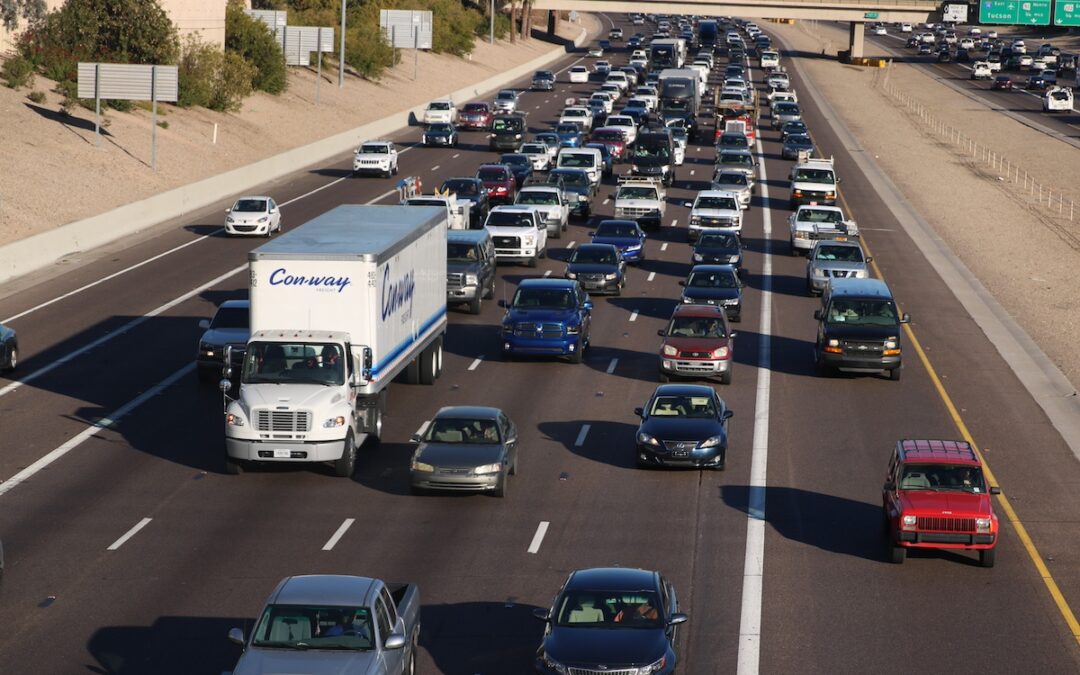
Arizona highways: Numbers of wrong-way drivers and crashes decrease
Driving under the influence of drugs or alcohol makes up the majority of the causes of wrong-way incidents. PHOENIX – A recent string of wrong-way...

Despite Phoenix’s vow of police reform, people touched by misconduct are wary after Trump ends DOJ scrutiny
WASHINGTON – Phoenix officials have offered assurances that police reforms will continue, despite President Donald Trump’s order ending federal...
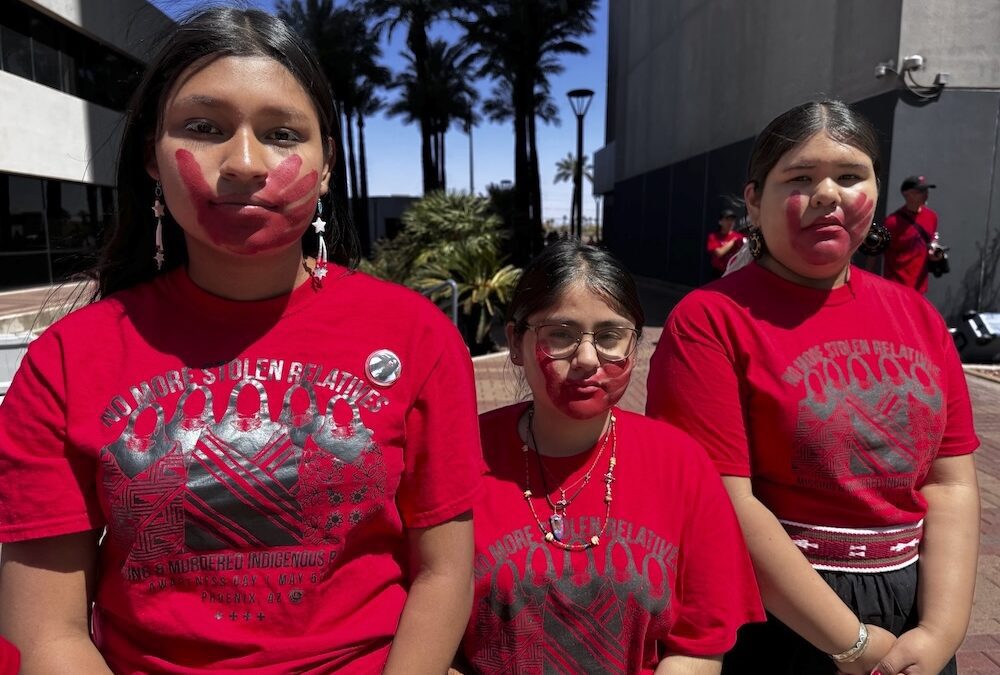
Indigenous people raise awareness about their missing and murdered
Indigenous people across North America are calling this week for sustained responses to the violence in their communities, much of it against women...
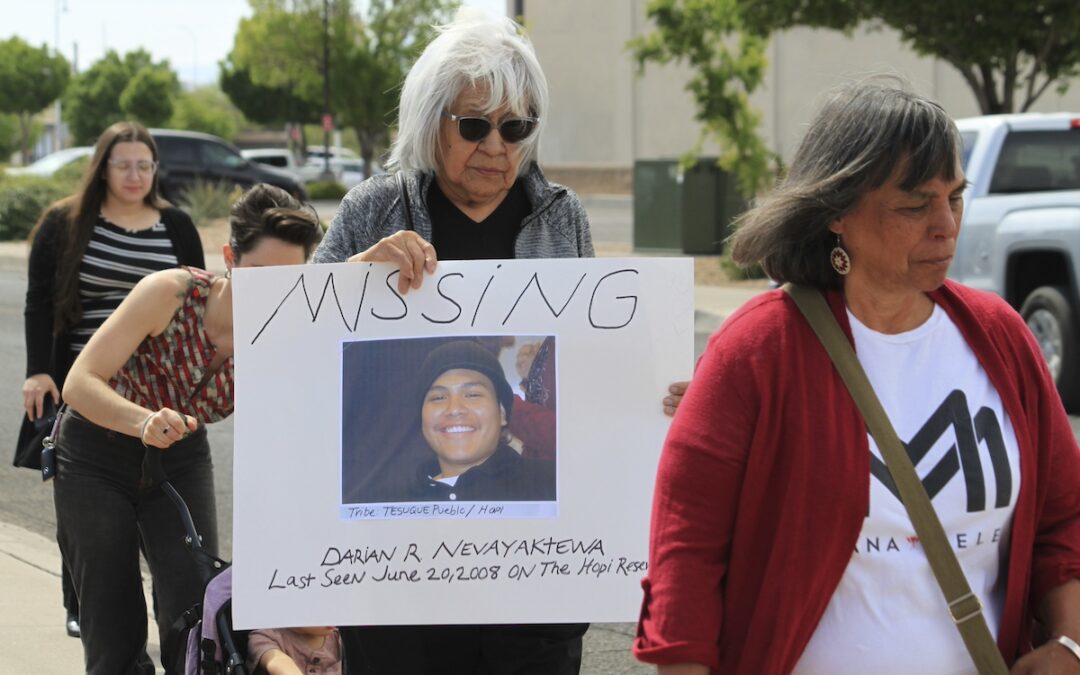
Unsolved violent crimes in Native American communities to get more attention with FBI surge
ALBUQUERQUE, N.M. (AP) — The FBI is sending extra agents, analysts and other personnel to field offices in 10 states over the next six months to...




